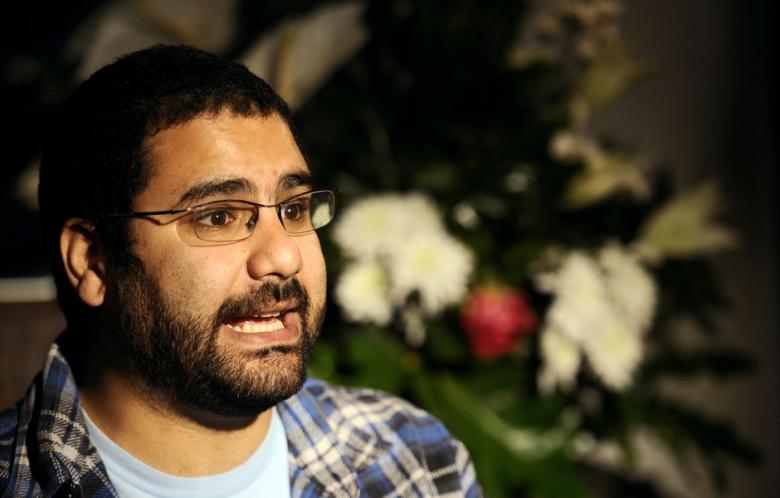CAIRO: Shia clerics are warning that comments made by the new Grand Sheikh of the renowned Sunni Al-Azhar institute in Egypt risk fuelling the divide between the two sects of Islam.
Sheikh Ahmed Al-Tayeb reportedly said he was against “any attempt to spread the Shia school of thought in any Islamic country, or to spread Shia cells among Sunni youth, the same way he said Iran was fighting attempts to spread Sunni thought among Shias.
Al-Tayeb, who was appointed the grand imam of Al-Azhar on March 19, just over a week after the sudden death of his predecessor, Sheikh Mohamed Sayed Tantawi, said Al-Azhar would continue conducting ideological outreach with Shias as a strategy to defuse tensions between the two groups.
Ayatollah Hashem Bushehri, a prominent Iranian Shia cleric based in Qom and a member of the influential Assembly of Experts, said Al-Tayeb was “sowing the seeds of strife.
Bushehri, who is also a close aide to Iran’s spiritual leader Ali Khamanei, accused the head of Al-Azhar of creating a “tense atmosphere and “providing ammunition to those who only understand the language of fear-mongering and terrorism. The latest tit-for-tat between the scholars underlines not only the growing tension between the two schools of thought throughout the Muslim world, but also the claims that Al-Azhar, described as the most important center of Sunni Muslim thought, has become overly politicized.
Khaled Hroub, from the Center of Middle Eastern and Islamic Studies at the University of Cambridge, said these comments illustrate how Al-Azhar has been taken over by the Egyptian government during the past three decades.
“Regarding his comments on the Shia expanding into Sunni communities, I think it’s a political consideration rather than religious, Hroub told The Media Line.
“Al-Azhar was hijacked by the state in the early 60s and functions as a tool in the hands of the government. If we consider that Al-Tayeb himself is a high-ranking member of the ruling party, you can see further into this issue, he said. “We can better understand his comments when we view the tacit hostility of Egypt against the Iranian influence and leverage across the region.
Egypt has been at odds with Iran, an Islamic Shia state, for over three decades.
Tehran cut diplomatic relations with Cairo following then-president Anwar Sadat’s signing of the Camp David peace agreement with Israel in 1979. Sadat’s welcoming of the fallen Shah of Iran following the collapse of his regime in 1979 thus sharpening the tensions between the two countries. This was compounded when an Iranian street was named after Khalid Al-Islambouli, the man who assassinated Sadat, in 1981.
Iran’s pursuit of a nuclear bomb has added fuel to the tensions with Sunni governments, including Egypt, who are concerned about the prospect of Iran becoming a regional nuclear power. This has been one of the issues widening the gap between Sunnis and Shias throughout the region.
Shias constitute between 10 and 15 percent of Muslims and are dispersed across the Arab world, with major clusters in the Gulf region. The main bone of contention between Sunnis and Shias is the issue of succession to the Prophet Mohamed, who died in the seventh century.
Iran has the highest concentration of Shias, with the vast majority of its 70 million-strong population adhering to this branch of Islam. Around two-thirds of the Muslims in Iraq are Shia, and a large concentration of Shias are in Bahrain (around 70 percent), Oman, the eastern province of Saudi Arabia, Kuwait, Pakistan and Lebanon.
“Back in the 30s, 40s and 50s Al-Azhar was a leading force in the dialogue between Sunni and Shia Muslims, Hroub explained, “and they even acknowledged Shia as an integral part of the Muslim doctrine and a legitimate school of thought, but now [Al-Tayeb] is going back to square one. I think it’s a political statement. What we’re seeing is a reactionary position.
This is also likely to have a negative impact on Sunni-Shia relations, Hroub explained.
“It will intensify the religious conspiracy between the two groups and give justification to radicals on both sides, who will receive these comments wholeheartedly and justify killings.
In interviews with BBC Arabic and the pan-Arab Al-Arabiya this week, Al-Tayeb expressed fears about Shiism encroaching into Sunni communities, saying “I feel there is a plan here, not for outreach but rather to convert Sunni youth to Shiism.
Al-Tayeb, 64, said he would try to confront any political agendas among Shia students studying in Egypt but added that he welcomed Shia students who wished to study at Al-Azhar, because he considered it an opportunity for them to gain knowledge about Sunni thought.
This is not the first time Al-Tayeb, who was appointed by presidential decree, has drawn fire since he took office. He has been steadily criticized for being a member of the policies committee of the ruling National Democratic Party.
Al-Tayeb insinuated during the interview that he might soon rescind his membership of the NDP if this will serve the interests of Al-Azhar. However, he said he did not see a contradiction between his NDP membership and his position at Al-Azhar.
The issue is especially sensitive now, since both legislative and presidential elections are slated to take place in Egypt over the next 18 months. President Hosni Mubarak’s NDP will try to garner as much support as it can in the run-up to the elections. The party fears that the Muslim Brotherhood, the largest and most popular opposition movement, is more likely to gain the Muslim vote.


